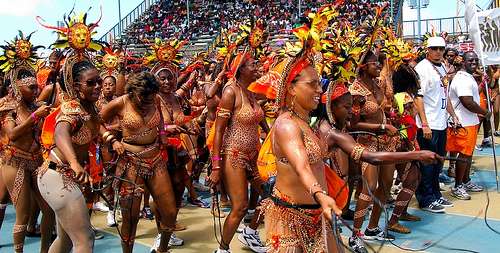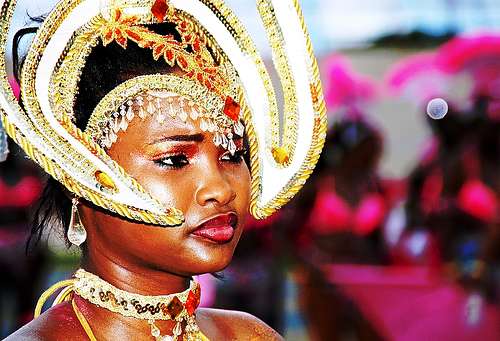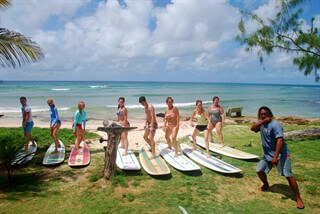Getting to Barbados and getting around. Our transportation tips will
help make your trip smoother. More good sand advice.
Entry Documents
Passport, return ticket & intended address.
Airlines Flying Here
- American Airlines
- jetBlue
- Caribbean Airlines
- Air Canada
- WestJet
- Air France
- British Airways
- Copa
- Air Antilles Express
- Virgin Atlantic
- Condor.
Airport
Grantley Adams International Airport, Barbados (BGI), is 13km (8 miles) east of Bridgetown, in the parish of Christ Church.
Departure Tax
$27.50 for all passengers over the age of 2. Passengers flying outside of the Caribbean region pay $70 pp, and those flying within the Caribbean pay $35 pp. Most airlines include this with the cost of the ticket.
Driving
On the left - need to have a valid driver’s license (for at least 2 years) from your home country, and will need to purchase a Barbados driving license. Most companies will require the driver be over 23 years old.
Child seat law: All children traveling without an adult in the back of the vehicle must have carseats. However, if the adult is travellng in the rear of the vehicle with the child, then no seat is required.
Local Transportation
1. Taxis: Taxis are a convenient and popular mode of transportation in Barbados. They are readily available at the airport, hotels, and tourist attractions. Taxis are metered and fares are regulated by the government, making them a safe and reliable option for getting around the island.
2. Public buses: Barbados has an extensive public bus system that covers most areas of the island. The buses are affordable and operate on fixed routes, making them a great option for budget travelers. However, they can get crowded during peak times, so plan your trip accordingly.
3. Renting a car: Renting a car is a great way to explore Barbados at your own pace. There are several car rental companies on the island, and prices are relatively affordable. Just be aware that driving is on the left side of the road in Barbados.
4. ZR vans: ZR vans are privately owned mini-buses that operate on fixed routes and are a popular mode of transportation among locals. They are known for their loud music and colorful decorations, making for a lively and unique ride experience.
5. Scooters and bicycles: For a more adventurous way of getting around, you can rent a scooter or bicycle in Barbados. This is a great option for exploring the island’s beautiful beaches and countryside.
6. Water taxis: If you’re looking to travel between the different islands of Barbados, water taxis are a great option. They operate between the main island and the smaller surrounding islands, providing a scenic and efficient mode of transportation.
7. Walking: Many areas in Barbados are easily walkable, especially in the cities and towns. This is a great way to soak in the local culture and discover hidden gems along the way. Just be sure to wear comfortable shoes and stay hydrated in the tropical climate.



